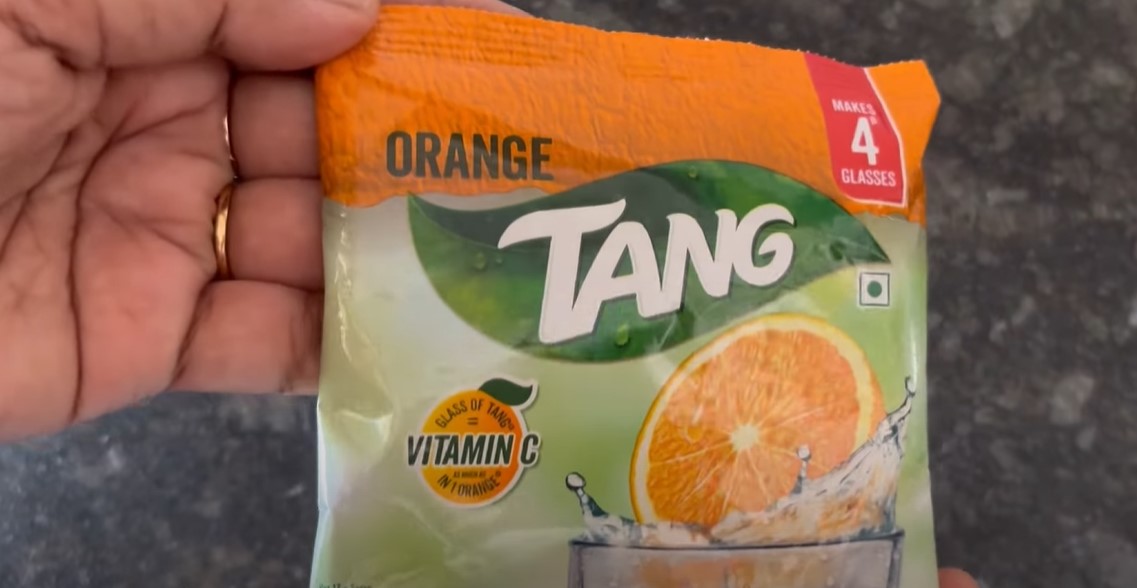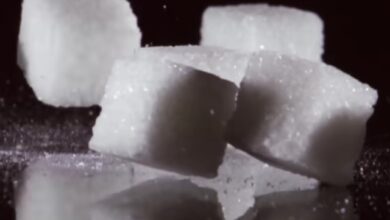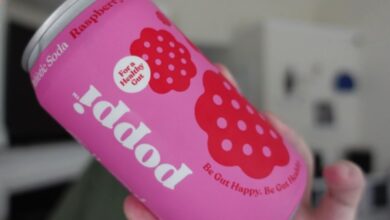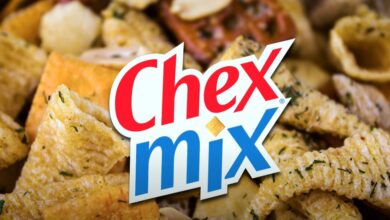Tang Nutrition Facts
Exploring Tang nutrition facts is like embarking on a journey into the cosmos, much like the astronauts who famously consumed this drink during the 1960s space missions. But what if there's more to this iconic orange powder than nostalgia and convenience, with its nutritional profile offering insights that could change how you perceive this popular beverage?
Tang nutrition label provides insight into the delightful world of this beloved drink mix. As the aroma of the instantly recognizable orange flavor fills the air, countless memories of childhood mornings come rushing back. Whether you enjoyed it as a refreshing afternoon drink or a breakfast staple, Tang’s presence is undeniable in many households. But have you ever paused to delve into the nutritional aspect of this iconic drink? Let’s dive in! 🍊
The Iconic Orange Flavour Tang
The orange flavor Tang stands out as the flagship variant of the brand. Its zesty and refreshing taste has charmed many across the globe. But what makes it tick nutritionally?
- Rich Source of Vitamin C: One of Tang’s key selling points is its vitamin C content. Indeed, does Tang have vitamin C? Yes, and in ample amounts!
- Calorie Count: Are you concerned about your calorie intake? Understanding the 1 glass of Tang calories can help you judiciously incorporate it into your diet.
- Sugar Content: The sweetness of Tang comes primarily from sugars, an essential aspect to consider for those monitoring their sugar consumption.
Starbucks and the Tango Tea Trend
Interestingly, Tang’s popularity gave rise to variants and interpretations, including in renowned chains like Starbucks. The Starbucks Passion Tango tea nutrition facts bring a delightful twist to the traditional Tang essence. In contrast, the iced passion Tango tea nutrition facts cater to those looking for a cooler alternative.
- Is Tang healthy? While Tang offers certain vitamins, balancing its sugar content and other Tang ingredients in your overall dietary intake is essential.
- Variants Galore: Tang’s flavor range is extensive, from the original orange to the tropical mango. And when considering the Calories in Tang Mango, it’s heartening to note the minimal variation across flavors.

Caloric Insights and More
One can’t delve into nutrition information without addressing calories. With Tang calories being a focal point, it becomes crucial to understand the breakdown, especially when one considers the Tang calories per tablespoon.
- The Caloric Breakdown: An average serving of tang drink mix usually stays within a specific calorie range, but it can vary based on the amount of mix used.
- Weight Loss Queries: The question, Is Tang good for weight loss? Well, like any other food or drink, moderation is key. While it provides vitamin C, it must factor in its sugar content in a weight loss regimen.
| Nutrient | Amount per serving (8 fl oz) |
|---|---|
| Calories | 90 |
| Total Fat | 0g |
| Sodium | 105mg |
| Total Carbohydrates | 23g |
| Sugars | 12g |
| Protein | 0g |
| Vitamin A | 10% Daily Value |
| Vitamin C | 100% Daily Value |
| Calcium | 0% Daily Value |
| Iron | 0% Daily Value |
Health Benefits and Drawbacks
One of the most notable aspects of Tang is its high vitamin C content, which supports a healthy immune system and aids in iron absorption from plant-based foods. However, it’s important to note that Tang is also relatively high in sugar and contains artificial flavors and colors, which some consumers may wish to avoid.
Frequently Asked Questions
Is Tang a good source of vitamins?
Yes, Tang is an excellent source of vitamin C, providing 100% of the recommended daily value in an 8-ounce serving. It also contains 10% of the daily value of vitamin A. However, it's essential to consume Tang in moderation due to its sugar content and artificial additives.
Does Tang contain caffeine?
No, Tang does not contain caffeine. It is a caffeine-free beverage option suitable for those looking to avoid stimulants in their diet.
Is Tang suitable for people with diabetes?
Individuals with diabetes should be cautious when consuming Tang due to its high sugar content. It's essential to monitor blood sugar levels and consult with a healthcare professional before incorporating Tang or similar products into a meal plan for those with diabetes.
Read also:
Conclusion
With its vibrant orange hue, the iconic Tang continues to be a cherished drink mix for many. Its rich vitamin C content undoubtedly brings certain health benefits to the table. However, it’s also essential to approach it with a balanced mindset, considering its sugar content. As with all foods and drinks, moderation and understanding its nutritional profile can help you enjoy Tang while staying aligned with your health goals. So, the next time you whip up a glass, take a moment to savor its taste and memories while making an informed choice. Cheers to nostalgia and health in a glass! 🥂🍊





